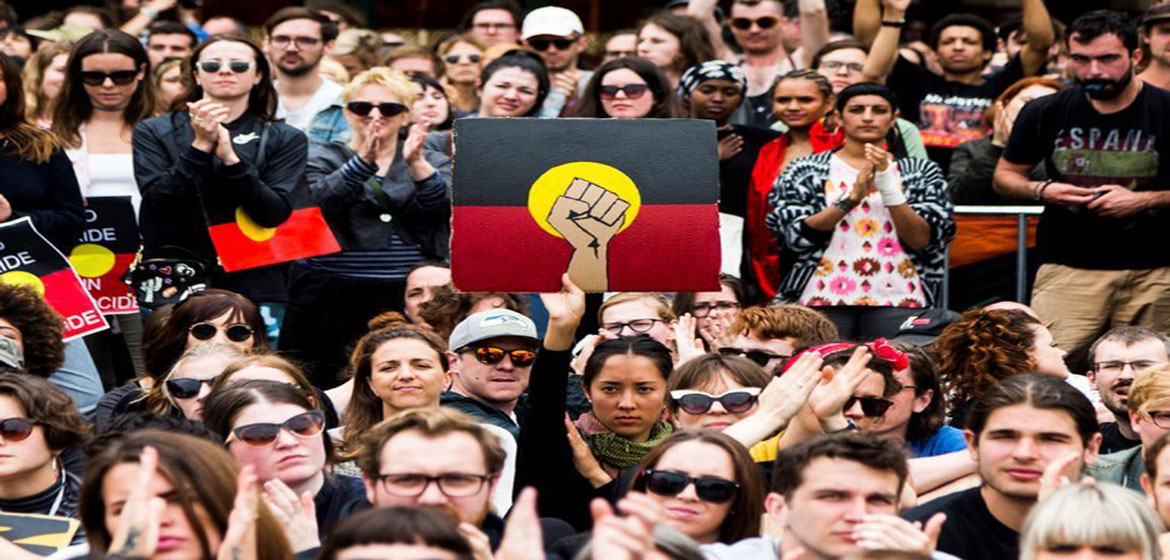By Waleed Aly
MELBOURNE, Australia — When pollsters asked Australians a year ago to list three words associated with Australia Day — the country’s Jan. 26 national day — the most popular responses were barbecue, celebration and holiday. But among Indigenous Australians, the most popular words were invasion, survival and murder. That, in miniature, is why the country finds itself in the throes of an intense debate over the timing of Australia Day.
Jan. 26 is the day in 1788 when the first fleet of ships from Britain entered Sydney Cove. Put simply, the holiday commemorates the British colonization of Australia — and with it the dispossession of the indigenous population, a centuries-long story of subjugation and countless atrocities, like the in the 1840s, in which up to 1,000 indigenous people were killed by white settlers over the course of a decade.
Aboriginal Australians have been objecting to the celebration of this date for decades. Back in 1938, for example, around 100 indigenous people held a Day of Mourning on Jan. 26. In recent years, aided by a “Change the Date” campaign and a growing awareness among non-indigenous Australians of what Jan. 26 means to the Aboriginal population, scrutiny of the date has come to dominate public conversations about the holiday.
This year, a popular youth radio station decided to move its annual “Hottest 100” countdown to avoid the date after surveying its listeners. Three local councils in Melbourne have to hold Australia Day celebrations this year, two of them suspending citizenship ceremonies for the day. At the federal level, the Green Party a formal political campaign to change the date. Last year, tens of thousands in “Invasion Day” protests — and those numbers will almost certainly be matched this year. Statues of British explorers have been recently.
Prime Minister Malcolm Turnbull joined the fray recently, people campaigning to change the date of “seeking to take a day that unites Australia and Australians and turn it into one that would divide us.” But whatever you might say about Australia Day, it no longer unites the country.
As long as it lands on Jan. 26, our national day will be a festival of dissonance, a celebration subjected to controversy and complaint. The narrative of barbecues and holidays cannot emerge unscathed from the moral seriousness of the objections.
In an age so conspicuously conscious of liberal notions of equality and inclusivity — evidenced, for example, by the rapid surge in support for same-sex marriage — the notion that indigenous people could be ignored is becoming intolerable.
The movement on this is all one way. A year ago, of Australians wanted the date to be changed. By , that figure was at 26 percent. A survey this month asked a different set of questions but that 49 percent of people agreed that Australia Day should not be held on a date Aboriginal people find offensive.
Support for changing the date will only increase with time. Australia Day as a simple, untainted celebration of the country’s achievements is finished. But what’s next?
We lack compelling alternative dates. The most obvious candidate is Jan. 1 — the date in 1901 that six British colonies managed to come together as a federation as a result of a vote, with no blood spilled. It is on that day that Australia as we know it was born. But it is also New Year’s Day, which apart from Dec. 25 might be the worst possible time for a national day.
Mark Kenny, an Australian columnist, May 9. It is the date that Australia’s Parliament first sat in 1901, the date that the capital was moved from Melbourne to Canberra in 1927 and the date on which a new Parliament house was opened in 1988. It’s a neat collection of events, and in the circumstances might even do. But none of these occasions has the watershed quality to command commemoration.
This messiness reflects the ambiguities of Australian identity. Australia is not the product of a French-style revolution or an American-style struggle for independence. Unlike New Zealand, it never struck a treaty with its indigenous population, so we cannot draw on an event like that to signal the birth of a nation. It has fought in wars, but its military history is already commemorated on Anzac Day, April 25. It never became a republic, so there’s no republican event to commemorate, and its monarchy belongs first and foremost to another nation, so a national day centered on the royal family would seem gauche.
The trouble is that Australia is a federation of colonies founded by the British for no particularly compelling reason. It doesn’t begin with some inspirational founding act or in the service of some grand social or political idea. It was a settlement of convicts — though an astonishingly successful one. Indeed, this ambiguity might be the reason for its success.
Australian-ness is forever being amended, negotiated, broadened. It is a country that continues to remake itself, less encumbered by the weight of its traditions. That might be a remarkable trait for running a society. But it turns out it’s an awful one for establishing a national day.
Source:
Related to SDG Goal 10 : Reducing inequality and SDG Goal 16: Promote Peace and inclusive societies



